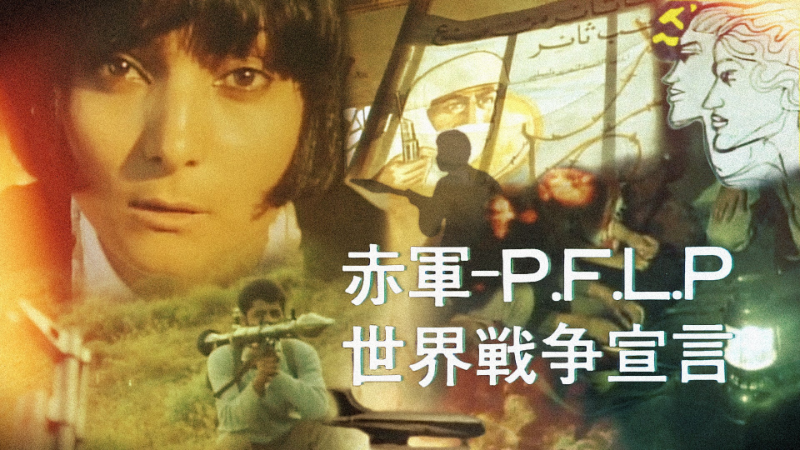I 1971 møtte filmskaperne Wakamatsu Koji og Adachi Masao Japans Røde Arme-fraksjon i Libanon da deres styrker sluttet seg til Folkefronten for Palestinas frigjøring for å bekjempe den sionistiske invasjonen. I en tid med masseopprør rundt om i verden og flykapringer som en populær kampmetode mot imperiet, tenkte filmskaperne på filmen som en nyhetsrull som skulle fungere som 'en krigserklæring.'
Ved å bruke lavbudsjetts, røffe landskap og vise revolusjonærene på bakken som bygger opp organisasjonskapasiteten for å ta opp kampen mot den israelske staten, skapte filmskaperne Red Army / PFLP: Declaration of War som en filmatisk bro mellom venstresidens kamper i Japan på 1970-tallet og kampen for palestinsk frigjøring.
Denne sjeldent viste filmen er en milepæl innen militant filmskaping og et viktig vitnesbyrd om en epoke med globale revolusjonære begynnelser. I samarbeid med en nyfremvoksende japansk Røde Arme-kadre (JRA) og ledere av Folkefronten for Palestinas frigjøring (PFLP), inkludert Ghassan Kanafani og Leila Khaled, ble denne filmen produsert i en nyhetsrullstil som skildrer de daglige aktivitetene til palestinske krigere, med hensikt å oppfordre til en verdensomspennende revolusjon.
In 1971 filmmakers Wakamatsu Koji and Adachi Masao met with Japan's Red Army faction in Lebanon as their forces joined with the Popular Front for the Liberation of Palestine to fight back the Zionist invasion. During a time of mass upheaval around the world and plane hijacking as a popular means of struggle against empire, the filmmakers conceived of the film as a newsreel that would act as "a declaration of war".
Using lo-fi, gritty landscapes and showcasing the revolutionaries on the ground building up the organizational capacity to take on the Israeli state, the filmmakers created a cinematic bridge between the struggles of the left in Japan in the 1970's and the struggle for Palestinian liberation.
Red Army/PFLP: Declaration of War is a milestone in militant filmmaking and an important testament to an era of global revolutionary beginnings. In collaboration with an emerging cadre of the Japanese Red Army (JRA) and leaders of the Popular Front for the Liberation of Palestine (PFLP), including Ghassan Kanafani and Leila Khaled, this film was produced in a newsreel style that depicts the daily activities of Palestinian fighters, with the intent of encouraging a worldwide revolution.

